
Hotpoint Dishwasher Not Drying? (here’s why & what to do)
Hotpoint have been making electrical appliances for many years and are a reliable brand. However, they can sometimes fail to perform as they should.
If your Hotpoint dishwasher isn’t drying your dishes, keep reading. In this article we take a close look at the reasons why your Hotpoint dishwasher might not be drying your dishes and offer the best ways to fix this annoying problem.
Why Is My Hotpoint Dishwasher Not Drying?
There are several reasons why your Hotpoint dishwasher might not be drying your dishes, which include;
| Probable Cause | Solution |
|---|---|
| Dishes Loaded Incorrectly | Always ensure the dishes are loaded in the correct manner |
| Removing Dishes Incorrectly | Remove dishes from the lower rack first |
| Washing Plastics | Wash plastic dishes separately |
| A Lack Of Rinse Aid | Ensure the rinse aid dispenser is always topped up |
| Using Low Quality Detergent | Always use top quality detergent in the correct quantity |
| Using The Wrong Cycle | Always select a cycle that includes drying |
| Salt Reservoir Empty | Ensure the dishwasher salt reservoir is always topped up |
| Clogged Filter | Clean the filter |
| Vent Problems | Inspect the vent and make sure it can open freely |
| Defective Turbidity Sensor | Check and clean/replace the turbidity sensor if necessary |
| Defective Heater Element | Contact a technician |
| Defective Fan | Contact a technician |
| Wiring Fault | Contact a technician |
| Defective Control Board | Contact a technician |
Let’s take a closer look at each of these issues;
Dishes Loaded Incorrectly
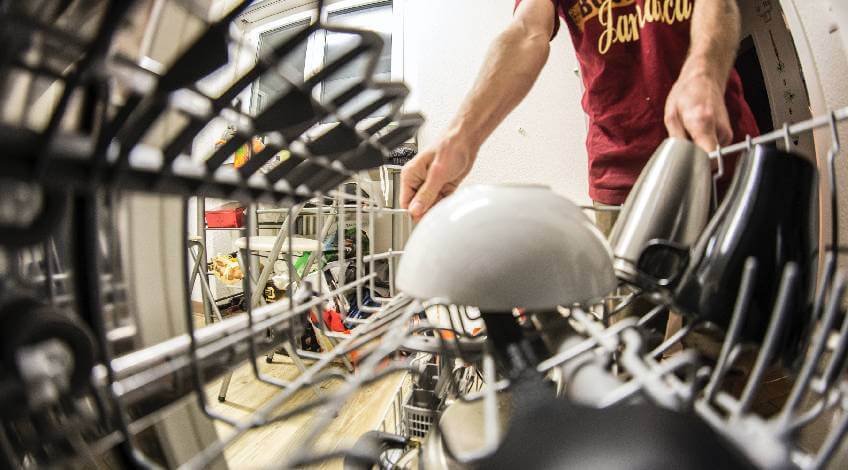
If you cram too many dishes into the dishwasher, not only does this have the potential to not clean them properly, they also might not dry properly either.
This is because the air flow will be restricted and might not reach each individual dish.
Upper Rack
You need to place bowls, cups and glassware facedown on the top rack to ensure proper rinsing and drying.
Lower Rack
Plates and cookware (saucepans) should be stacked on the bottom rack. With plates facing inwards and saucepans upside down. Always allow enough space between each plate to allow enough air flow.
Cutlery Basket
Cutlery should be placed in the cutlery basket in such a manner as to not allow nesting. This means alternating knives, forks and spoons so there is space between each item and they should be placed upright and not sloping.
Removing The Dishes Incorrectly
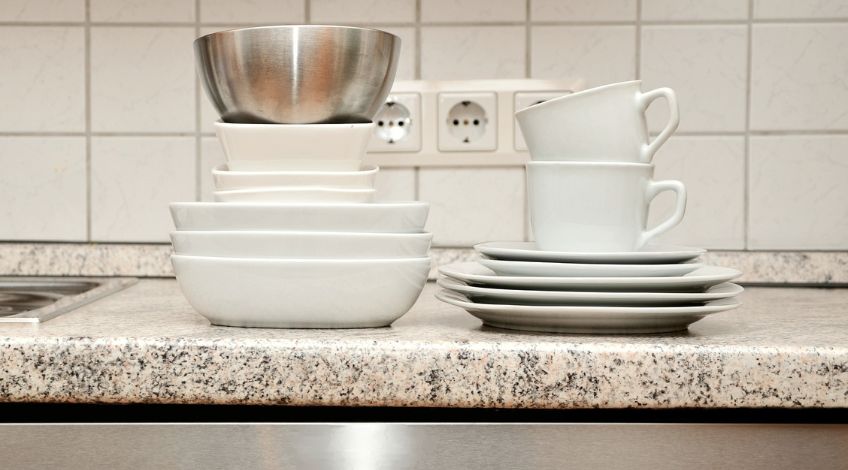
You should always unload the lower or bottom rack first. This prevents any accumulated moisture from the upper or top rack dripping onto the plates once the upper rack is moved.
Washing Plastics
Ceramics, glassware and stainless steel absorb heat which makes them hot enough to repel moisture. Plastic bowls and plates do not absorb heat so well which is why plastic items often remain wet after the cycle has completed.
You should wash plastic items separately to avoid excessive moisture in your dishwasher.
A Lack Of Rinse Aid
Rinse aid isn’t just there to make dishes sparkle. It actually breaks the surface tension on water droplets which speeds up rinsing and drying in the dishwasher.
As using rinse aid is a necessary part of the regular functionality of the dishwasher, you need to ensure the rinse aid dispenser is regularly topped up.
Using Low Quality Detergent
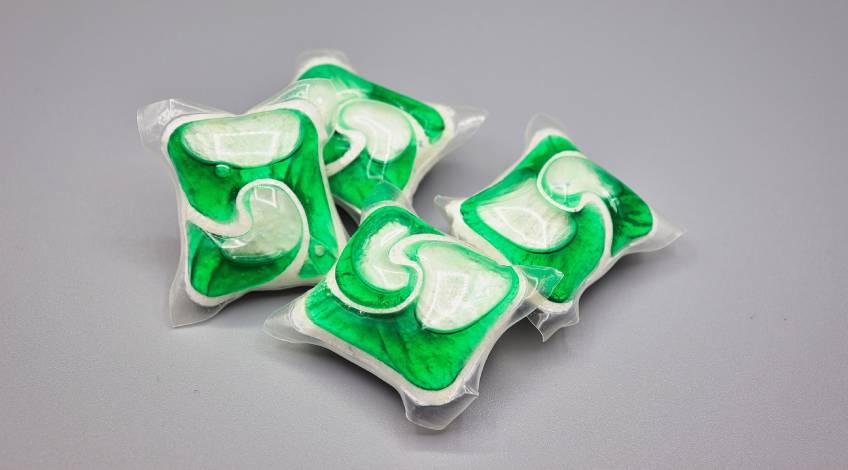
If you use a low quality, inferior detergent in your dishwasher, or use an incorrect type of detergent, it can cause excess soap suds which can inhibit the drying process.
This is also true if you use too much of the right detergent. Always ensure that you use the correct type of detergent in the right quantity and stay away from low priced budget dishwasher detergents.
Using The Wrong Cycle
Your Hotpoint dishwasher may have a few wash only cycles. If you select a wash only cycle, the dishes will not dry.
Always ensure you select a cycle which includes drying if you want your dishes dry at the end of the cycle.
Salt Reservoir Empty
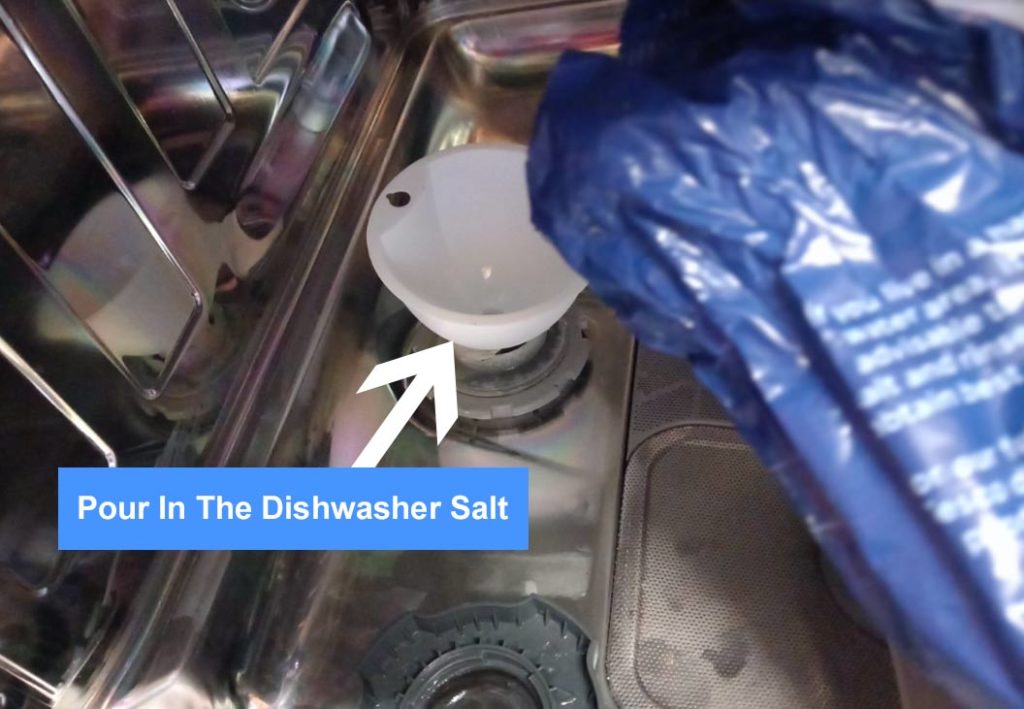
Dishwasher salt is an important and necessary ingredient to the smooth running of your dishwasher. It ensures that the water used to wash your dishes is soft water, even in hard water areas.
Hard water can leave a residue on your dishes which allow water droplets to adhere to. Your Hotpoint dishwasher should have a warning light that lets you know when the salt reservoir needs topping up.
Filter Clogged
The filter on your dishwasher is there to trap any food particles or debris that was left on your dishes. This is to prevent them from returning to the clean dishes and also to prevent damage to any of the internal components on your appliance.
If the filter becomes clogged or partially blocked, it can impede the flow of wastewater from the dishwasher. This can be all that’s needed to prevent the dishes from drying properly.
You should clean the filter on your dishwasher at least every month.
Vent Problems
During the drying cycle many Hotpoint dishwashers use a vent to release hot, moist air created during the wash cycle. If the vent doesn’t open correctly it can lead to the dishes not drying properly.
You will need to check that there is nothing blocking the vent or preventing it from opening properly. If there doesn’t appear to be anything blocking the vent, you will need to check that it is functioning properly.
We advise you to contact a technician to do this for you.
Defective Turbidity Sensor
The turbidity sensor detects the level of food particles and debris in the water that’s circulated through the dishwasher. It does this to determine how long the wash and rinse cycles should run for.
If the turbidity sensor becomes dirty with food particles or other debris, it can prevent the wash or rinse cycles from completing. This can cause the dishes to not get dried at all.
You will need to get the turbidity sensor cleaned and checked. If it proves to be defective, it will need to be replaced.
Defective Heating Element
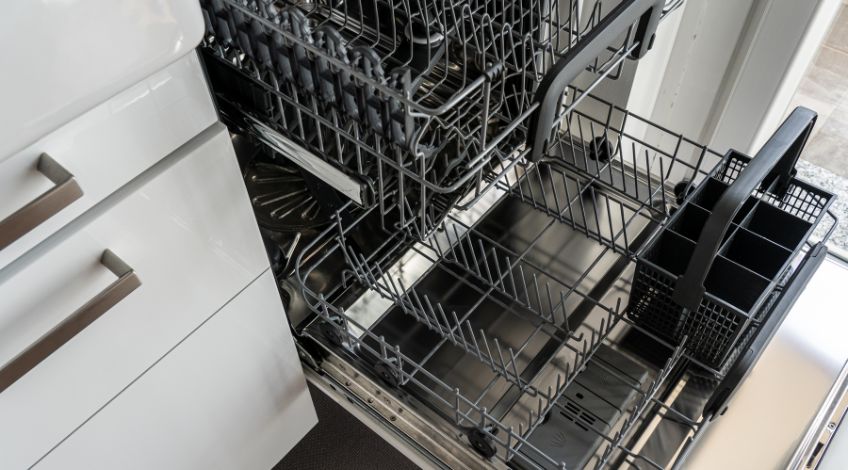
Your Hotpoint dishwasher relies on the heating element to heat the water to wash your dishes and the air to dry them. If the heating element develops a fault, it will prevent the dishes from washing properly as well as preventing them from drying.
This could be due to the heating element or the heater relay, either way, we recommend getting a technician to investigate this for you.
Defective Fan
Many Hotpoint dishwashers rely on a fan to distribute hot air through the appliance to dry the dishes. If the fan motor fails, the heat produced by the heating element cannot get distributed onto the dishes.
This is another fault best left to a technician to investigate and fix/replace as necessary.
Wiring Fault
There are a myriad of wires and connections on a dishwasher. Anyone of which could become disconnected, burnt out or develop a fault of some kind.
One single shorted out wire could be enough to stop the heating element from working.
We recommend getting a technician to investigate and solve this issue for you.
Defective Control Board
The control board controls every function on your dishwasher. If it becomes defective it is possible that the drying function could fail.
The control board is an expensive component and also quite a delicate part. Which is why we recommend getting a technician to investigate and replace the control board if necessary.
SEE ALSO: Dishwasher Tablets Not Dissolving? (here’s why & what to do)
Frequently Asked Questions
There are several reasons why your Hotpoint dishwasher isn’t drying dishes, they include; the dishes not loaded correctly, unloading the top rack first, washing plastic dishes, a lack of rinse aid, salt reservoir empty, using the wrong type or too much detergent, selecting the wrong cycle, a blocked filter, vent problems, defective turbidity sensor, defective fan, defective heating element, a wiring fault or a defective control board.
Whether it’s worth replacing the heating element in a dishwasher depends on how much it will cost to replace and how old the dishwasher is. If the dishwasher is less than 5 years old and the replacement part is less than half the price of a new appliance, then it’s worth doing.
The average life expectancy of a dishwasher is around 10 years.
Also, follow us on Pinterest ...



